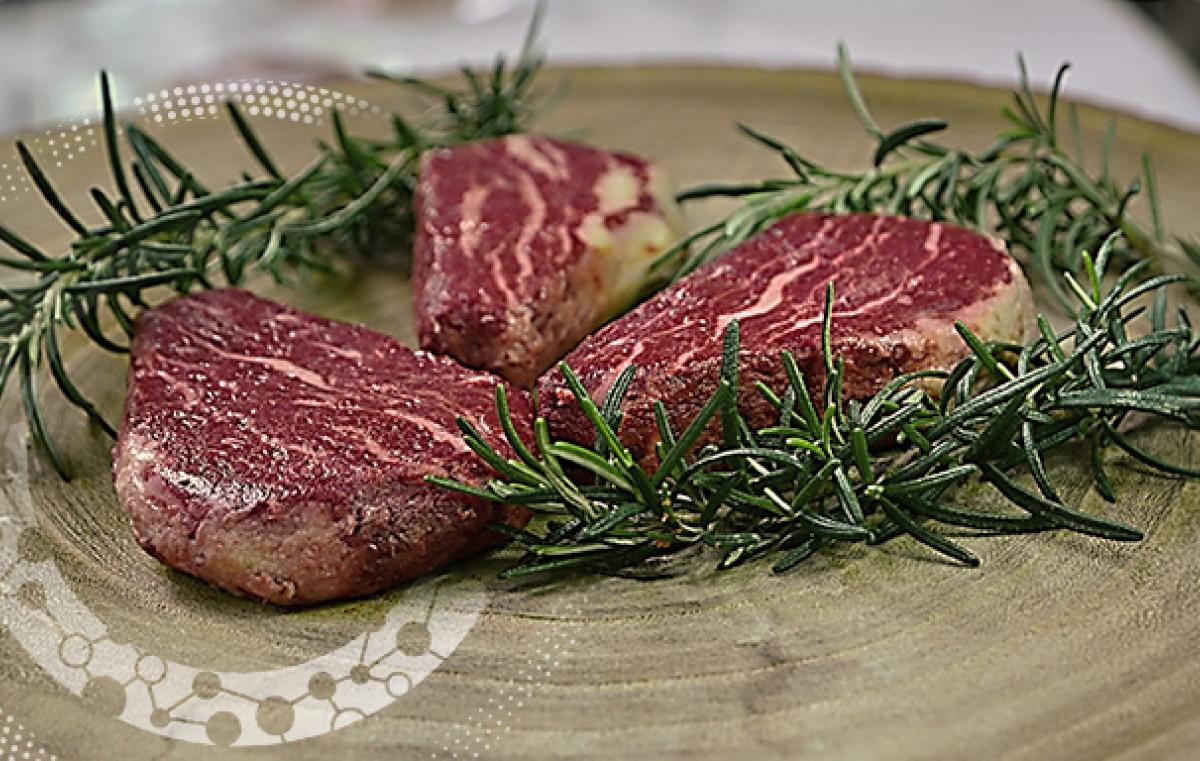Laboratory Steaks? Yes, Please!
Imagine sinking your teeth into a perfectly marbled, juicy steak. The aroma is mouthwatering, the taste divine. Now, imagine that this culinary masterpiece was created entirely from plants, in a laboratory

Welcome to the future of food, where science meets sustenance in the most delicious way possible.
At the forefront of this gastronomic innovation is Professor Hagay Shpaisman from Bar-Ilan University's Department of Chemistry. His work is set to transform the meat industry, offering a tantalizing glimpse into a more sustainable and ethical future of food production.
"A cow is the most inefficient factory in the world," Professor Shpaisman explains. "You invest a lot of energy, and only 5% comes back to you as the final consumer product." This inefficiency, coupled with the environmental impact and ethical concerns of traditional meat production, is driving a global shift towards alternative protein sources.
From Lab to Table: The Science of Substitute Steak
In the Materials Directive Laboratory, Professor Shpaisman and his colleague Dr. Udi Greenberg are tackling the holy grail of meat substitutes: the perfect cut of steak. Their approach? A dash of chemistry, a sprinkle of nanotechnology, and a whole lot of innovation.
"For meat eaters, there's no substitute for a good steak," Shpaisman notes. It's not just about taste – it's the appearance, texture, and the unique experience of every bite that makes steak so special. Replicating this complexity has been the biggest challenge in the world of meat alternatives.
The Secret Sauce: Nanotechnology Meets Food Science
The breakthrough came from an unexpected source: nanotechnology. By adapting techniques from this field, Shpaisman's team developed a method to arrange plant-based materials that mimic muscle, fat, and connective tissue into a structure that closely resembles a real steak.
Their prototype is impressive, capable of "printing" about 200 kilos of plant-based steak per hour. It's a far cry from the frustrating early attempts, and a testament to the power of perseverance in scientific innovation.
Beyond the Lab: The Road to Your Plate
This isn't just a scientific curiosity – it's a commercial venture with real-world potential. The technology is patented through BIRAD, Bar-Ilan University's commercialization arm, and a new company, Malanta Foods, has been established to bring these lab-grown steaks to market.
The team is collaborating with food industry experts to fine-tune every aspect of their product. As Professor Shpaisman puts it, "Food is a very complex field. Everything needs to work right for the cut to look good, smell good, taste good and give a good feeling in the mouth, as similar as possible to the feeling of taking a bite of a real steak."
The Bigger Picture: Food Security for the 21st Century
This research is part of a broader movement towards ensuring food security in an increasingly populated and resource-strained world. By 2040, it's estimated that 60% of the meat we consume will come from alternative sources like these plant-based steaks.
As we stand on the brink of this food revolution, one thing is clear: the future of meat might not involve animals at all. Instead, it could be growing in laboratories, crafted by scientists who are as much culinary artists as they are chemists.
From Basic Chemistry to Food Security is a mini symposium hosted by BIU on October 9. It's open to the public and no admission is required. Follow the link for more details.